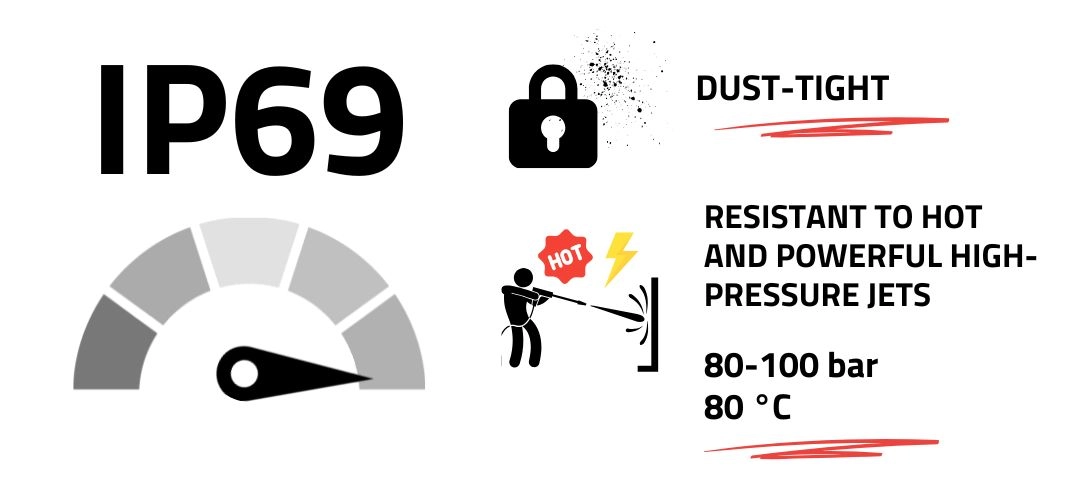
IP69 represents a very high level of protection against water, dust, and mechanical stress, making it ideal for use in demanding environments such as industrial machinery, vehicle lighting, and electronic devices.
Meaning of IP69
| IP Classification | Significance: |
|---|---|
| First digit: 6 | Complete protection against dust particles |
| Second digit: 9 | Protection against steam jet cleaning |
Application areas include:
- In agriculture, machines are often exposed to mud and a lot of water.
- Food Industry: Equipment must withstand high-pressure cleaning and/or high temperatures.
- Automotive sector: Vehicle lighting and electronic components must be water- and dust-resistant. Therefore, IP69 is not a luxury here.
- Maritime applications: Equipment on board ships must withstand salty environments and provide waterproofing.
IP69 can withstand high pressure, but it is not resistant to prolonged immersion like IP68. TIP: If both are important, choose a product with IP68 + IP69 / IP69K.
IP69 falls under the IEC 60529 standard
The official body responsible for the standardization of IP ratings, including IP69, is the International Electrotechnical Commission (IEC). The IEC publishes the standard IEC 60529, which defines the degrees of protection (IP code). This international standard specifies the levels of protection provided by enclosures for electrical equipment against access to hazardous parts, the ingress of solid objects, dust, and water.
IP69 vs IP69K
Both are IP ratings that indicate a product is resistant to powerful and hot water jets. However, the difference between them lies in the applied testing methods and criteria.
IP69 falls under IEC 60529. This is an international standard published by the International Electrotechnical Commission (IEC). This commission defines the IP ratings (Ingress Protection), which indicate how well the enclosures of electrical equipment are protected. These ratings specify the level of protection against the ingress of solid objects (such as dust) and liquids (such as water).
The IP69K standard has a more specific and stricter testing procedure and simulates conditions typical for automotive environments, such as washing down from all angles with high-pressure hoses. Learn more about IP69K.
A complete overview of all ratings can be found in the blog: IP classifications